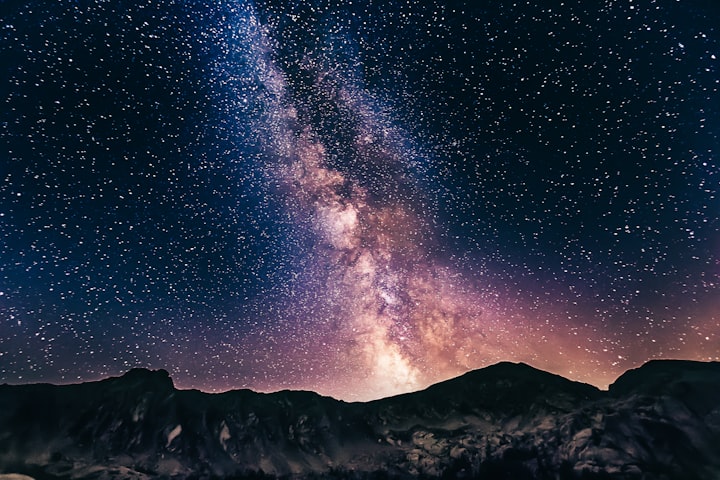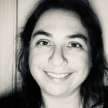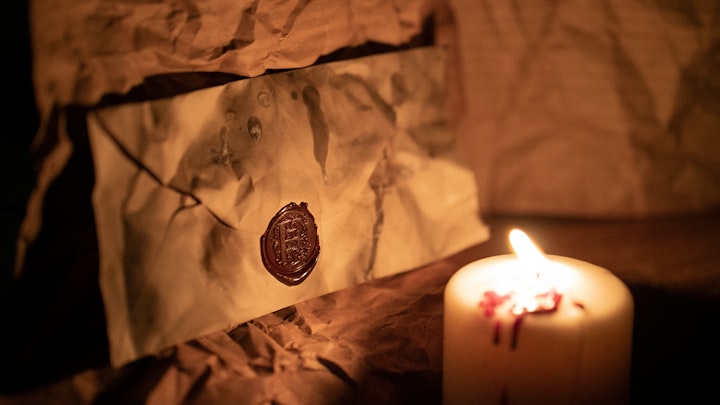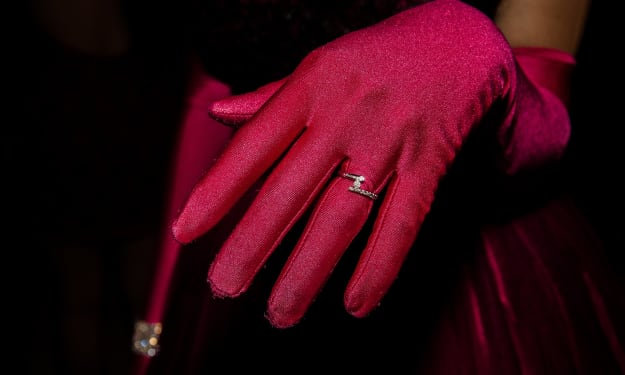The Cure That Wouldn't Come
<em>Cure:</em> a complete or permanent solution or remedy. Recovery or relief from a disease. -Merriam-Webster

I am seven, huddled in a corner of the bathroom, breath suspended. No one can see me behind this locked door. No one can hear me, either. I have mastered the art of crying noiselessly. But still I hold my breath, wait for the sounds of footsteps to pass.
Bathrooms are the only safe place. They require no explanations, engender no questions. I only have to say, “I’m going to the bathroom”, “Oh, sorry, I was in the bathroom” and that is the end. No one wants to know more. They don’t need to know.
***
I am nine, and in my bathroom. It’s a joke in the school now, “my” bathroom.
I should have known I would not make it through this day without stepping on the minefield. It strikes deeply, swiftly, cruelly. I have at least gotten better at hiding it. I didn’t even flinch, managed to smile, and excused myself for the bathroom.
“It’ll get better,” I whisper between sobs that are not entirely noiseless, but the sounds that escape me don’t sound like crying. They could be mistaken for grunting. No one would know, even with ears pressed against the door, that they have anything to do with grief. “I’ll grow up, and it’ll get better.” It’s a promise, a vow, a plea.
***
I am fourteen, and it’s here again, the cutting, the crying. I thought I was better, but my friend said I’m someone who makes people tired. That I’m just too much, sometimes. I barely make it outside, to the fringes of the property that no one visits, because this won’t be contained. I should have been better at dealing with this but the blade is sharper and it cuts with jagged, rusty edges. It’s getting harder to heal from these wounds.
Wailing escapes me. “I’m not grown up yet,” I promise myself in gasps. “It’ll get better. I’ll be better.”
The next day, I am cheerful again. I have to be. There is so much to be happy and grateful for. I won’t think about that friend who was not really a friend. I won’t try to make friends at all anymore, though such vows usually get broken within the month.
Birds, trees, and stars make better friends than people. They never say mean things and run away. I will spend my time with them.
***
I am eighteen and grown up. This is it, I will be cured. All of the waiting will be worth it, because I made it to being grown up.
My boyfriend texts me that I make him exhausted, that I am high-maintenance.
I don’t understand—I went out of my way to follow his lead, to not make demands or play games. I never ask for presents and we go Dutch on dates. I thought I was doing all the right things to not be a burden, but there the relationship lies, all shattered on the ground. It’s because it’s you, that minefield voice says. You can’t escape being you.
I’m in the bathroom, gasping, keening. But it’s okay, I must not be grown up yet. 18 must not be enough. I have to make it to 21. If not, then 25. But it’ll get better. I’ll be better. I can still cure this thing that makes me Other, that puts me on the outside, looking in. I will fix this.
I’ll let go of that boyfriend who did not really love me. If he had, he would not be mean and run away. Love is better than that, if the stories and movies are to be believed.
The sun and the moon are kind to me. Even the rain is warm as it splashes against my skin. I will hug a stuffed animal if I am lonely, and I will go out on dates with the sky. At least the sky will never shun me, and no matter where I go, it will not run away.
***
I am 21 and some days are finally, definitely better. Some days I don’t cry, and I don’t think the world is better off without me. But I’m spending my birthday with the companion I’ve known the longest—that voice that lives in minefields.
The day started off well. I was happy. Then my elementary school friend sent a wedding invitation. It struck hard and fast, the realization that life has moved forward for other people. They have parties with friends and dates that lead to marriage. They have children and buy houses. Somehow, they have officially become adults. I still feel like I’m 16, trapped in a snow globe. There is life beyond the glass, but sometimes I can’t touch it.
I am alive. That is my claim to adulthood. I got a job, but it is not fancy, and I don’t need or want a crispy business card I can flaunt at parties. I just want to live, until I can be cured. Until I can be normal. Until I can fit.
I am alive, but I still hold hours-long debates with me and my committee of optimists, pessimists, realists and idealists—do we give up or do we try fixing this one more time?
We have come to the conclusion that my chances of being cured are slim, but there is still hope. I can be cured, soon. Later. One day.
I am crying so hard I can’t breathe. But still no one hears me. I am supposed to reach out, when things get hard. “Talk to me,” my therapist says. “Call me,” my mom says. “I am right here for you, whenever you need me.”
But I can’t make my fingers move to pick up the phone. I can't see clearly through the crying. I would not be able to speak coherently, even if I managed to get through to someone.
It’s okay, an angel whispers, hugging me from my back and smoothing my hair. It’s okay, you are not alone. I will be with you, I will keep you company through this vigil. It will be okay, I promise.
When? I ask. It was supposed to be better when I grew up, it was supposed to be different, but this isn’t what I expected. When will I be cured?
There is no answer but I feel the hug, the tenderness, that gentle comfort of being rocked.
It’s okay, I decide. I will sleep and be fine tomorrow. If I can sleep, dreams will take me away, for a spell. I’ll wake up and be cheerful, because that is who I am. I’m the cheerful one, the optimistic one. There isn't room for anything else, outside these walls.
I’ll count my achievements, my proof of adulthood, my value, my status, against a different standard. It doesn’t matter if I fail against everything outside. None of the other checkmarks on a list will mean anything if I am not cured, so I will work harder to make that grade, that one accomplishment: I am cured. I am okay. It’s really better now.
***
I am 25, a quarter-century old. I am definitely grown up now, right? I had the most wonderful birthday with lots of people who count me as a friend, so I am cured, right?
It’s been a month since I was last devastated—the meds must be working, Buddhism must be working, I think I’m finally going to be okay, for real this time.
“Let’s hang out more, yeah?” A friend pats my shoulder as he leaves my party with his family. But he never actually texts me first. And he only ever comes with his family, and his parents are friends with my parents.
Thirty people were just at my birthday, they all wrote messages in a book my mom provided, they are all my friends, or are they?
I’m inundated with proof that I’ve been hoodwinked. We almost never hang out if it isn’t at a family party, they never reach out first, and when I do write them the texts last a few exchanges and peter out. Were they just being polite all this time? Do I have any actual friends that are just mine?
I’m crying again, and it feels like my lungs will break trying to fit in breaths between the sobs. I am a mere hanger-on, an accessory, it is all fake. I should have known, that a person like me would not have real friends. I am not sure, some days, if I even count as a real person.
I had thought that the worst pain was losing friends to fights or abandonment. It turns out there are even deeper levels of breaking, of ruining, of losing. It is fake. I should run away first, and save them the trouble of pretending.
The committee that springs to life in this grief has shifted away from whether living is worth another shot or not to whether it is possible to live on in suspended animation without being obvious, or if even that is too much to burden the world with.
The angel is with me again, holding me and smoothing my hair. It’s okay, the angel promises. It will be okay.
Liar! When? I ask. If it isn’t growing up, when? It’s been so long I can’t remember when crying like this wasn’t part and parcel to my existence. Tell me when I will be cured, when I will be normal, when I will be real.
You’ll understand, the angel says. You can’t see it now, but you will be grateful for this later.
Grateful? I scoff. Grateful for pain so severe it was less gruesome when I broke my bone in three places?
The angel doesn’t respond, but I have stopped crying in the exchange, and I pick up my pen to write. The rest of our conversation comes out as poetry, sheets and sheets of poetry.
I’ll be better, I decide. If I can’t make real friends, I will have imaginary friends that converse with me in art and inspiration. I must have pursued the wrong cures, but there are more ways to solve this. I just have to try harder.
***
It has come to a head, this decades-long battle. I am waving the white flag. I am 28 and some months, and it has been officially concluded by committee that I am a hopeless case. I’m either irrevocably broken or I subconsciously refuse to change, and that refusal is stronger than my conscious vows to fix this. It is simply impossible that after all of this effort, I am not cured. So I am incurable.
I hate the angel who makes promises that never come true. I detest myself for believing them. I loathe the universe that has somehow tricked me into thinking This Time, This Time. I abhor myself for possibly committing some form of domestic abuse with all of my I’ll Change, I’ll Do Better, Really, I Promise. Beneath that is a deep apathy of finally being convinced of the utter uselessness of trying. This visceral amalgam of emotions has at least superseded the grief—I can’t cry anymore even if I wanted to.
I close my eyes, accept that this is the last time I have this argument.
You ran away first, a new voice says. You walked out on yourself and left the room of your own life.
What? I open my eyes, stumble back. I did what?
I see it clearly then, sharply, swiftly, all the times I gave up on myself and declared that trying again would be futile, but I would do it for the sake of trying—really trying—even if people like me couldn’t be saved.
What “people like me”? When had I become the worst and meanest bully of my life? I thought escaping all the other bullies meant I was protected, but I hadn’t counted on the ones inside that I carted around.
Had I really forsaken myself, even at a young age?
You are not shattered Humpty-Dumpty, the voice says. You sought a cure that wouldn’t come, because you can’t cure what isn’t broken.
I shake my head. There’s no chance I’m in any way normal. Except, in this slice of heightened consciousness—perhaps some version of life flashing before my eyes on the cusp of death (that thankfully came before the actual attempt to die)—I’m remembering.
That’s normal, my therapist said. Many with your condition feel that way.
That’s normal, my doctor said. People with Diabetes often experience that.
That’s normal, my teacher said. Students learn in different ways, at different speeds.
I hadn’t believed them—I was practically famous for being hopeless, but they had never actually said that. I had assumed it, based on what appeared to be solid evidence that no matter what I tried, I could not become normal.
But what is normal? The angel asks. What does normal look like to you?
I pause. You might as well ask what the sky looks like. It’s the sky—it’s obvious to everyone when it’s raining, sunny, smogged up or full of stars. It’s the sky.
But what does normal look like? The people who can eat whatever they want, who have energy to do stuff, who make friends effortlessly and keep them for twenty years, people who date without any problems and get married and have kids and stay together for fifty years because their love is that strong. People who don’t have to second-guess themselves or feel lacking because they didn’t go to college. Those “out there” who don’t find everyday life challenging, who aren’t so exhausted.
Have you ever known a normal person like that?
I pull up short. I knew lots of people who were married for 50 years but it was not a picnic where they never fought. It was exceptionally dedicated work, making it through so many life changes. Even then, sometimes all the devotion in the world couldn’t hold the marriage together. Irreconcilable differences.
Most people who I knew as social butterflies did not actually find it effortless. There was tremendous attention to detail cultivating those relationships and finding time for those they loved.
My mind starts short-circuiting. Has my idea of normal been a mirage? Did anyone actually have that kind of life?
To that end, what had my cure looked like? This carrot I had been chasing for over twenty years, was it a mirage, too?
I had wanted to be like other people. Go to college without crying because someone said something that flayed me. Go on a date with a person who didn’t play weird games. Fit in all the right boxes, so I wouldn’t be perennially the odd person out. Belong to people and make them happy so they wouldn’t run away.
Meanwhile, I would have needed to stomp out everything that was initially mine, gain the superpower of being able to control things outside of human capacity (like other people’s opinions, emotions, moods, etc.), and live by a standard totally not my own.
Revisiting my “cured self” who could do all these things my current self had trouble with—these things were not easy for anyone. Also, I already had work I enjoyed, I preferred spending time with my dogs than going to parties, and, hey, what would it mean to really “belong”? To whom or to what? Could I find a way to belong to myself first?
I had somehow bought into a checklist “Everyone Who Qualifies as Human Has...” gotten married, had children, been promoted up the ranks to the fancy title and earned the Better Homes and Gardens house and hosted the Martha Stewart dinner parties with lots of friends.
That would be a horrible life, I confess. How exhausting, doing all that for the sake of checking a box on a list.
“I’m going to stop looking for a cure,” I announce. “I’m taking suicide off the table, permanently. For now, I’m going to try liking myself exactly as I am, and work on the things in my power to change.”
Today, I will like my smile, I decide. Let’s try to find one thing a day I can sincerely like about myself. We’ll graduate to loving myself, later. One day.
***
I wish I could say this was the beautiful culmination where I never again made a mistake, went down dark, weird paths, felt suicidal or beat myself up for not being Like I Should Be. It’s a work in progress, but it did get better. And, looking back, I had been getting better all along, but I had not acknowledged it because I was deep into seeking out The Cure.
I’m 35 now, and I no longer cry for hours in the bathroom. Once in a few months I will sob over something, and losing friends still breaks my heart—but it doesn’t shatter me like it used to. I don’t decide this proves I am a useless, unlovable person. I don’t have the rages that plagued my teenage years or the spells of being hopeless that infiltrated my 20s. I do fall down a lot but it hurts less.
The universe turned out to be extraordinarily kind and loving, the promises the angel made were surprisingly kept (albeit years later, ahem), and I had a tremendous amount of help, support, love, and care—those had been with me all along, too, but I wasn’t always able to recognize them.
I managed to stop hating myself. I could even forgive myself. Loving and acceptance, embracing, sculpting, is next. Instead of seeking a cure, I’m searching for understanding and tools. Sometimes even if something is normal, I don’t have to surrender to it. Also, sometimes even if something goes in a way I don’t want it to, I don’t have to be stubborn about it. There is still so much to learn.
I’m not sure if I’m a grown-up yet. I’m revisiting that definition. Instead, I try to recognize when I am growing up, present tense.
About the Creator
Joanna Celeste
I love to cook, dance, sing, clean, study, invent, color and write. I am enamored with the magic of the every day things, the simple things, and the discovery of new things in areas I had thought I knew. Life is a fantastic breeding ground.






Comments
There are no comments for this story
Be the first to respond and start the conversation.